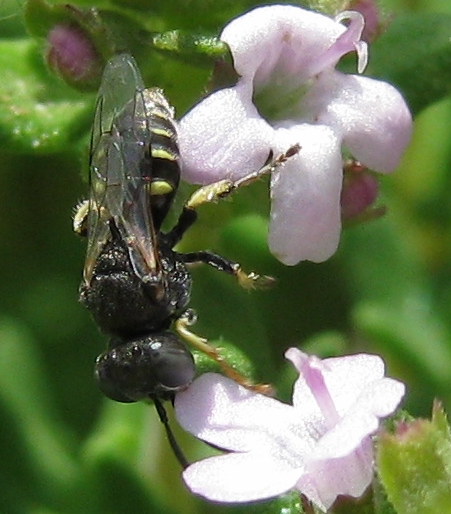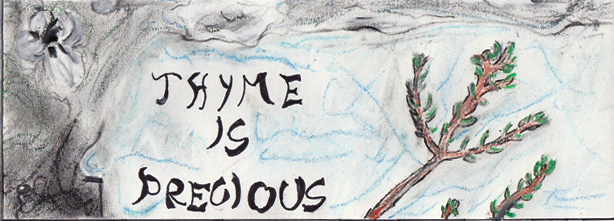Interactions

Plants
Thymus vulgaris doesn't get along well with other plants. This
is because plants with volatile oils create an alleopathic
effect. It has a negative effect on surrounding organisms. Thyme
leaches terpenes, a chemical made by plants, from other plants.
As a result, other plants don't like to grow around it. Many
times, there are bare spots surrounding the base of the plant. A
study on the chemical make up of thymol conducted by Yan Linhart
and John Thompson showed it successfully kept the number of
competing plants down. This is important in arid regions because
whoever gets more nutrients and water is more likely to survive.
This study also showed that germination is slowed. By slowing
the life cycle, other plants could germinate at the wrong time
and die off.
Animals
Not many animals interact with thyme. Pollinators like
bees, wasps and butterflies
are a few of the few bugs that like Thymus vulgaris.
Thymol has a bitter/bad taste and herbivores prefer to avoid
eating. Not only does thymol have a better taste, the oil can
even be toxic to predators. However, the toxicity varies between
plants, and where it comes from in the plant. In their study,
Linhart et al also examined the how the polymorphism effects the
thyme. They concluded that herbivores would eat the plant, but
more often choose other plants over thyme. Not all animals avoid
thyme. For example, the Sinai Baton Blue butterfly, one of the
world's smallest butterflies, only lives on wild patches of
thyme in the Egypt.
Fungi & bacteria
Not much is known about thyme's interactions with fungi
and bacteria, but thyme does have fungal and antibacterial properties.
This hypothesis was supported in the study by Linhart et al,
they found the numbers of bacteria and fungi were minimal when
exposed to thymol. This experiment was only conducted in the laboratory(it
would be difficult to test in nature).
